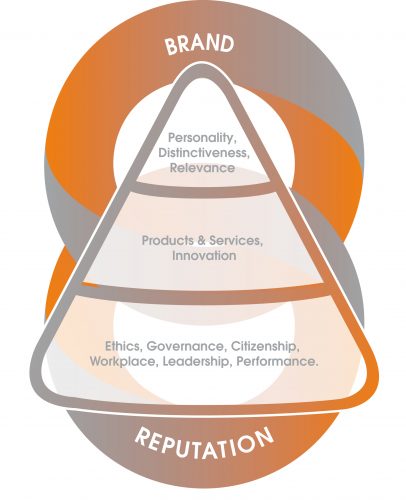
“Consumers are morons”
Mark Ritson recently published an opinion piece where he concludes that in light of the relatively small dip in VW sales following the emissions scandal, perhaps consumers are unconcerned with corporate reputation, that they are perhaps, really morons.
This got me thinking, are consumers really morons, unconcerned with corporate reputation?
It was ten years ago that Mintel coined the phrase ‘conscious consumerism’ in a report it published that predicted “an end to conspicuous consumption to a period of more conscious consumerism”. The report suggested that consumers would make more informed purchase choices; that brand and product attributes alone would not be enough to secure loyalty as consumers would seek shared values and ethical behaviours from the companies from which they were buying products.
It’s a similar view that many reputation advisers pedal today. Reputation Institute says on its website that “People’s willingness to buy [from] a company is driven 60% by their perceptions of the company, and only 40% by their perceptions of their products.”
Turns out – if recent revelations about VW and indeed Google and Amazon are anything to go by – that these statements are wrong. Consumers, on the whole, appear not to care much about corporate behaviour as long as they get the product they want from a brand they like.
Take Google for example: we recently heard that the CEO of Google is to be paid $199 million this year. That’s $12 million more than the $187 Google grudging paid in back tax in the UK for the period 2005 to 2015 on revenues of over £25 Billion. This news was reported with righteous indignation across the UK media but I can see absolutely no evidence that consumers are using this as a reason to stop using Google’s services.
It’s the same with Amazon. For many consumers, Amazon provides such a great service that its tax arrangements and treatment of its employees – whilst objectionable to many – do not seem reason enough for the vast majority to stop using its service.
VW Group has seen its sales dip by just 3.8% across Europe (January 2016). Despite the scandal, it still finished as the world’s second largest car manufacturer selling over 9 million cars in 2015. Again suggesting that for the vast majority of VW customers, the emissions scandal simply isn’t enough to stop them buying the product they like, from a brand they’ve grown to trust and admire.
Does this mean consumers are morons?
I don’t think so. I think on the whole that consumers do make informed decisions but ultimately, like all decisions in life, there’s a trade off. And that trade off has multiple variables both rational and emotional.
I’ll use my personal relationship with Google as an example: One trade-off is the balance of effects. I.e. the direct and immediate affect on me of Google’s tax arrangements versus the direct and immediate affect of my switching from Google to another provider of search/email/calendar etc. In this trade-off I experience no immediate personal effect of Google’s tax arrangements but I would be inconvenienced if I switched from Google. So on balance, I’ll have a moan about Google’s tax arrangements but I’ll still use their products.
Another trade-off is brand experience. My alternatives to Google are limited to Yahoo and Bing, which, whilst providing similar products, are not brands with which I have much of an emotional connection. Yahoo I perceive as cluttered and a bit downmarket and Bing I perceive as lacking function and a bit corporate and dull. Google on the other hand is a great product and a brand I like as it’s cool and contemporary and these are attributes I like to be associated with. So in the brand experience trade-off Google also wins.
So if my experience as a consumer is anything to go by, it would appear that both Mintel and Rep Institute got it wrong: a strong brand and a great product trump corporate behaviour, not the other way around.
Does this mean that corporate behaviour and reputation don’t matter to consumers?
It might appear so when you consider my ‘sample of one’ analysis of my relationship with Google. But that’s probably an oversimplified conclusion to draw and ignores the cumulative effects of negative perceptions.
My relationship with Amazon is a good example of this cumulative effect. I don’t use Amazon and I actively lobby my partner and other family members to follow suit. The reason I’m against Amazon is the cumulative effect of various aspects of its corporate behaviour that I don’t like (such as its tax arrangements; treatment of UK employees; aggressive competitive strategies that kill smaller players). Together these things are enough for me to make a conscious decision not to use Amazon. So again, in my tiny sample of one, I’d suggest that corporate behaviour and therefore corporate reputation – ultimately – do matter. To repeat an oft used cliché: corporations can only draw from the reservoir of goodwill so many times until it’s gone and customers and stakeholders withdraw their support.
In the final analysis a great product and brand can protect a corporation against a certain amount of – what consumers perceive to be – bad behaviour, but if my sample of one is in anyway representative, consumers aren’t morons, and will only tolerate so much.
So companies must work to build both great brands AND solid reputations to be successful in the long term.

